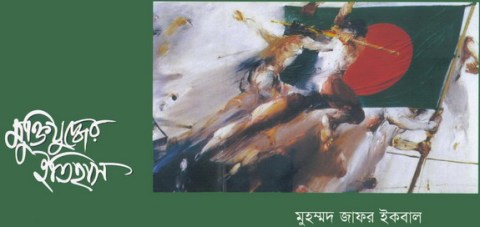Abul Fateh (born 1924) is the Bangladesh diplomat who became that country’s first Foreign Secretary when it gained its independence in 1971. He was an unusual diplomat of his time, as he was Bengali-born, but had managed to work his way up the ranks of the Pakistani power structure. Then when Bangladesh began seeking independence, it was a massive morale boost for the Bangladeshi people, for people of Fateh’s stature to resign from the Pakistani power structure, and support the fledgling country of Bangladesh. Fateh was the highest-ranked and most senior foreign service officer in the new country. His story was later documented in a National Geographic documentary, Running for Freedom.
After the Pakistani military crackdown in March 1971, Abul Fateh received a request from a former university dormitory mate, Syed Nazrul Islam, to join the liberation struggle. At about the same time, in July 1971, Fateh received a summons from the Pakistan Foreign Ministry to attend a conference in Tehran of regional Pakistani ambassadors. He chose to take his official car ostensibly to drive to Tehran but, as he and his driver approached the Iran-Iraq border, he feigned chest pains and ordered the driver to return him home, where he arrived that evening. Saying that he would take a plane the next day, he dismissed the driver. That night, he fled with his wife and sons across the border into Kuwait, from where they took a plane to London.
The announcement of Fateh’s defection to the Bangladesh cause marked the first time a full ambassador had joined the fledgling Bangladesh diplomatic service. The news was received with fury by the military regime in Islamabad, which meanwhile had discovered that on the afternoon just before his supposed departure for Tehran, he had cleared out the Pakistan Embassy bank account in Baghdad to the benefit of the Bangladesh government. The military regime’s requests to extradite him from London were rebuffed by the British Government. These events were chronicled in a 2003 National Geographic Channel television documentary, Running for Freedom.

Abul Fateh (second from left) with his family in London.
The Mujibnagar government made him ambassador-at-large, followed in August 1971 by the concurrent position of Advisor to the Acting President, a position he was to resign in January 1972 after the return to Bangladesh of Bangabandhu Sheikh Mujibur Rahman. He had a leading role, as the Bangladesh movement’s senior-most diplomat, in a delegation under Justice Abu Sayed Choudhury which went to the United Nations in New York to lobby for the Bangladesh cause. He was also in communication with other governments, such as the Nixon administration via the French consul. He was one of the first high officials to reach Dhaka after its liberation, and was quartered with other senior officials in Bangabhaban until January 1972. Already the effective head of the incipient foreign service, he became Foreign Secretary at the end of 1971.
Source


